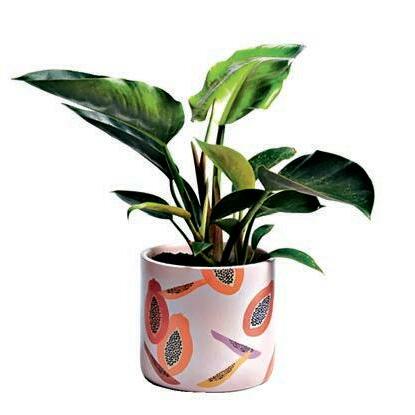
3 minute read
Happy vibes
Find your joie de vivre!
WHEN IT COMES TO HEALTH, GUILT MAY BE OUR WORST ENEMY
WORDS LIZ McGRATH
Are we so obsessed with health and the ideal of the perfect body that we’re forgetting how to enjoy life? Worldrenowned oncologist David Khayat thinks so.
In his new book Arretez de Vous Priver (Stop Depriving Yourselves) the former chairman of France’s National Cancer Institute argues our “obsessive quest” for perfection is damaging our self-esteem and creating “a permanent and insidious stress”.
“We should be able to enjoy a few small excesses, without feeling guilty,” Professor Khayat says, bemoaning “years of ‘diktats’, that we must stop eating sugar, stop eating fat, stop eating meat, stop drinking a glass of wine”.
And for some Australian experts, it’s a oui oui!
“I totally agree,” Melbourne dietitian Teri Lichtenstein says.
“Food is such a wonderful aspect of our society and so pleasurable, but decades of mixed messages have seen people become fixated on foods they think are bad,” Teri says.
Lisa Saulsman, clinical psychologist from The University of Western Australia’s School of Psychological Science, believes the solution has become the problem.
“We’re so busy trying to fix all these things about ourselves, that sometimes the thing stopping us, the thing that’s going to bring us happiness, is to enjoy what we can about our lives right now,” Dr Saulsman says.
What better time than now to look at wellness rules we can learn from the French.
Walk or ride a bike
Walking is a daily occurrence for the French, and Prof Khayat suggests incorporating exercise into your day.
“Not everyone has an hour-and-ahalf to go jogging or to do the latest trendy sport on the latest machine,” he writes in his book.
“Get off a Metro or bus station before your destination, climb the stairs a little more every day, walk 10,000 steps a day — activity isn’t limited to sport!
“Life changes in small steps, not by buying sneakers overnight to tackle a marathon.”


Enjoy fresh, seasonal produce
Whether it is in Paris or a provincial town, the French buy many of their groceries from local markets, meaning fresh, seasonal and often organic produce.
“That’s lots of fruits and vegetables but also discretionary foods like a buttery croissant every now and then, a piece of chocolate, a glass of wine,” Teri says.
“There’s a case for all sorts of food in our diets and plenty of evidence to show that restrictive diets don’t work in the long term. The key is to savour and enjoy a wide variety of foods, but without excess.”
Eat smaller portions
In France, eating is a social experience and something to be savoured slowly.
And there have been many scientific studies to show the French, unlike many other developed nations, eat smaller portion sizes.
“What French and Mediterranean countries have focused on doing so well is eating just when they’re hungry,” Teri says. “Whereas we tend to overdo it — we eat and drink until we’re overfull, not until we’re no longer hungry.”
Cook your own meals
Studies also show home cooking is the main ingredient in a healthier diet.
“Of all the forms of artistic activity that man has displayed, the most spiritual art, in my opinion, is cooking,” Prof Khayat told French newspaper Le Figaro.
Herbs and spices, with their powerful health benefits, are also an important and consistent element in French cooking. Think basil, marjoram, parsley, sage, tarragon and thyme.
Say oui to mindfulness
As well as employing a little more c’est la vie (shrugging your shoulders and saying that’s life), being able to hit pause and be present in the moment is vital, Dr Saulsman says.
“Our over-active minds can cause us huge grief and it’s easy to lose sight of what’s really important,” she says.
“Imagine someone giving a speech at your 80th birthday. Would you want them to say you were a size eight? Or that you were a good friend, a good parent and that you enjoyed life and lived a good life? It helps put things in perspective.”
As Prof Khayat says: “Life without pleasure makes no sense.”











